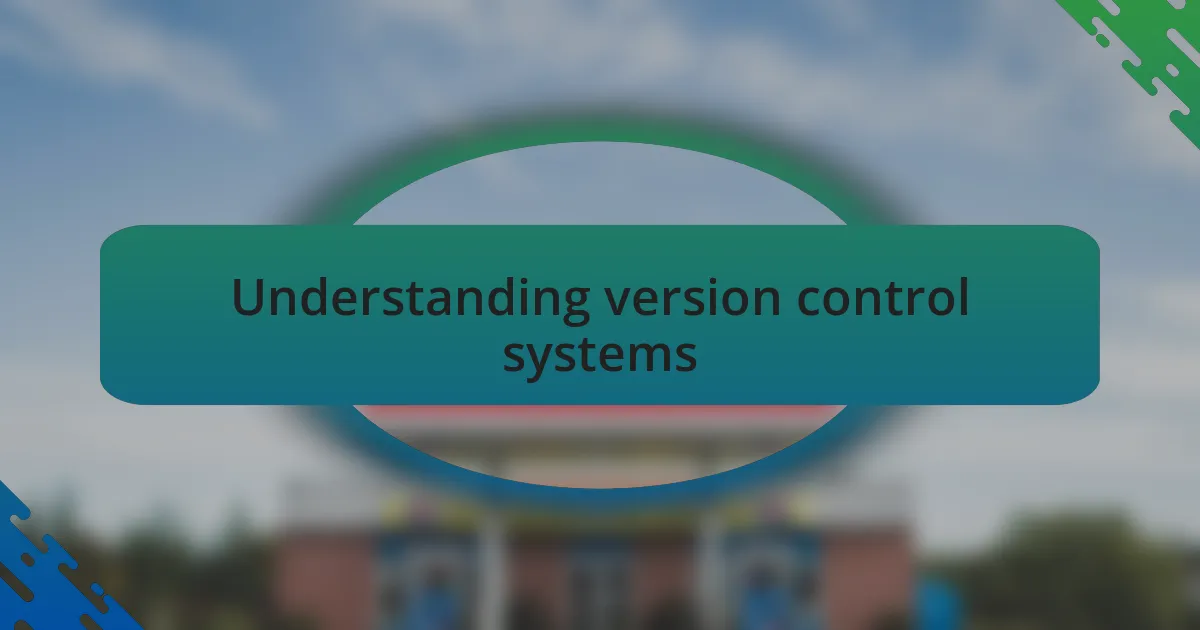Key takeaways:
- Version control systems (VCS) are essential for tracking changes, facilitating collaboration, and enabling code experimentation safely.
- A good VCS enhances teamwork by providing accountability and transparency, making collaborative projects more manageable.
- Reviewing project history through commits offers insight into the evolution of a project, highlighting the impact of small changes over time.

Understanding version control systems
Version control systems (VCS) are like the lifeblood of software development; they allow developers to track changes, collaborate seamlessly, and revert to earlier versions if needed. I remember my first experience with Git, and I was astounded by how efficiently I could manage my code. It was a game changer—what if you could always have a safety net while experimenting with your code? That’s the power of VCS.
When I think about version control, I often reflect on the thrill of collaborative projects. Working with others can feel chaotic at times, but a good VCS brings order. Have you ever grappling with merge conflicts? I have, and each time, I learned something new about teamwork and patience. The ability to see who made which changes fosters accountability and transparency, enriching the whole development experience.
There’s also something deeply satisfying about reviewing the history of a project as it evolves. Each commit becomes a snapshot of progress, a culmination of ideas and effort. I’ve delved into my projects after months, feeling reminiscent as I traced back through the commits. It’s fascinating to see how small changes led to monumental shifts in direction. How often do you get to witness that in real-time development? Version control systems provide that precious oversight, illuminating the journey of software growth.